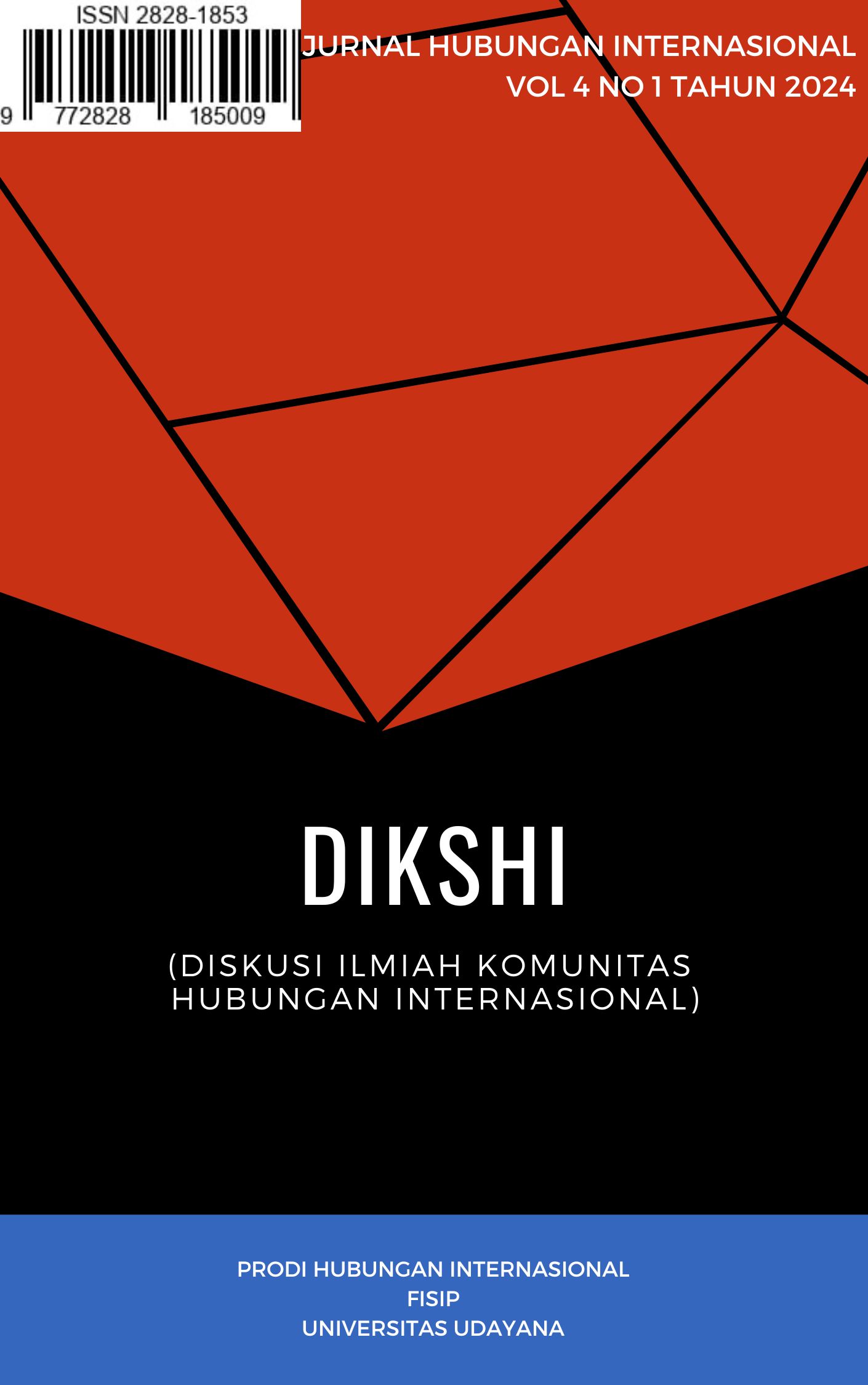Japan Cultural Diplomacy Through Makoto Shinkai's Animation as a Soft Power Instrument
Abstract
Anime as an instrument of soft power has been a medium of cultural diplomacy by Japan. Through the years, anime continues to improve its quality and quantity, making it a form of Japanese popular culture that has received attention and interest from people in various countries. This study aims to examine the representation of the anime films Kimi No Nawa and Tenki No Ko as instruments of soft power in Japanese cultural diplomacy. Makoto Shinkai's two masterpieces have attracted attention and popularity outside of Japan. In the process of analysis, the authors use the concept of soft power, cultural politics and cultural diplomacy as well as qualitative research methods. From the research conducted, the authors found that Japan maintains its image and influence and shows openness to international audiences. This can be seen from the representation of Japanese cultural values and foreign culture in the dynamics of urban and rural life shown in the anime. These two anime have positively impacted Japan's cultural diplomacy given the high viewership numbers, records and revenue from film screenings worldwide like in People’s Republic of China, South Korea, United Kingdom and Singapore. This film was also successful in presenting a new tourist attraction for foreign fans because several fictional locations in the film were inspired by real places or locations in Japan. The government had facilitated package tour for tourists to travel several real places in the anime.








